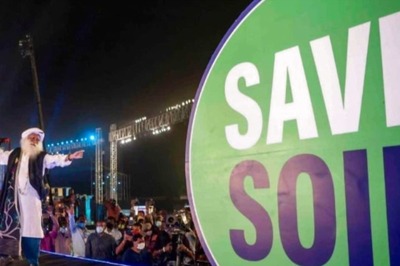
views
The Bombay High Court on Thursday denied relief to actor Anushka Sharma and dismissed her petitions disputing orders issued by the state Sales Tax department demanding tax under the Maharashtra Value Added Tax Act for assessment years 2012 to 2016. A division court of Justices Nitin Jamdar and Abhay Ahuja ruled that the actor could file an appeal against the decisions under the Maharashtra Value Added Tax (MVAT) Act.
Sharma has filed four petitions under the Act, challenging four orders issued by the Sales Tax department levying tax for the assessment years 2012-13, 2013-14, 2014-15, and 2015-16, said a report by Times of India.
The Case Explained
Anushka Sharma filed a petition in the Bombay High Court disputing the Mazgaon sales tax deputy commissioner’s orders raising dues under the Maharashtra Value Added Tax (MVAT) Act for 2012-13 and 2013-14, as per a report by Indian Express.
For 2012-13, the state imposed Rs 1.2 crore in sales tax (including interest) on Sharma’s Rs 12.3 crore earnings. During 2013-14, she was taxed Rs 1.6 crore on the Rs 17 crore she got. This would be compensation for the actor’s ads and performances at award events, the report said.
The major problem is how tax officials interpret a key reform in copyright legislation enacted in 2012 to preserve artists’ rights, it said.
What Do Anushka’s Petitions Say?
According to Sharma’s petitions, she acted in films and at award ceremonies as part of a tri-party arrangement with her agent, Yashraj Films Pvt Ltd, and producers/event organisers during the relevant period. The petitions said the assessing officer assessed sales tax not on film consideration but on commercial endorsements and anchoring at award celebrations, claiming that Sharma had transferred her performer’s rights.
They contended that she was giving services and earning money under a “contract for services” rather than a “contract of services,” under which she is not hired by anyone.
A contract for service is used when you want to hire a third party as an independent contractor for a specific task. A service contract is similar to an employment contract.
Performers’ Rights
Before, performers’ rights were not protected under Copyright Law. The performance of an actor in a film or the performance of a vocalist in a song recording were not protected. Under Copyright Law, the concept of performers’ rights was established in 1994. The Rome Agreement of 1961 established the concept of performers’ rights. It was stated that performers have rights and that their content cannot be televised without their authorization. The concept of performance rights is recognised in Sections 38 and 39 of the Copyright Act, says a report by Legal Services India.
The British created the First Law on Copyright, which had no concept of performance rights. There was no mention of performer rights in the Copyright Act of 1957. The Bombay High Court ruled in Fortune Films vs. Dev Anand that there were no performance rights under Indian Copyright Law.
Sections 38, 39, and 39 A were included as amendments in 1994 to deal with the concept of performance rights. Indian law explicitly recognised the concept of performance. According to Section 2(q)(q), an actor, singer, dancer, acrobat, snake conjurer, or anyone delivering a lecture or making any kind of performance.
The Copyright Act of 1957, as amended in 2012, recognises “Performer’s Rights” when a performer engages in any performance, such as a song, movie, or literary work, and the same remains with the concerned person for 50 years as of the “beginning of the calendar year next following the year in which the performance is made.” This change was made in 2012 to safeguard artists. For instance, if the copyright to a song is licenced, the vocalist and lyricist would also be entitled to a portion of the royalty payments in addition to the producer, explained the Indian Express report.
Importantly, the rights under this clause cannot be relinquished or diminished by a contract, which means that performers’ rights cannot be sold or transferred through a contract.
Read all the Latest Explainers here




















Comments
0 comment